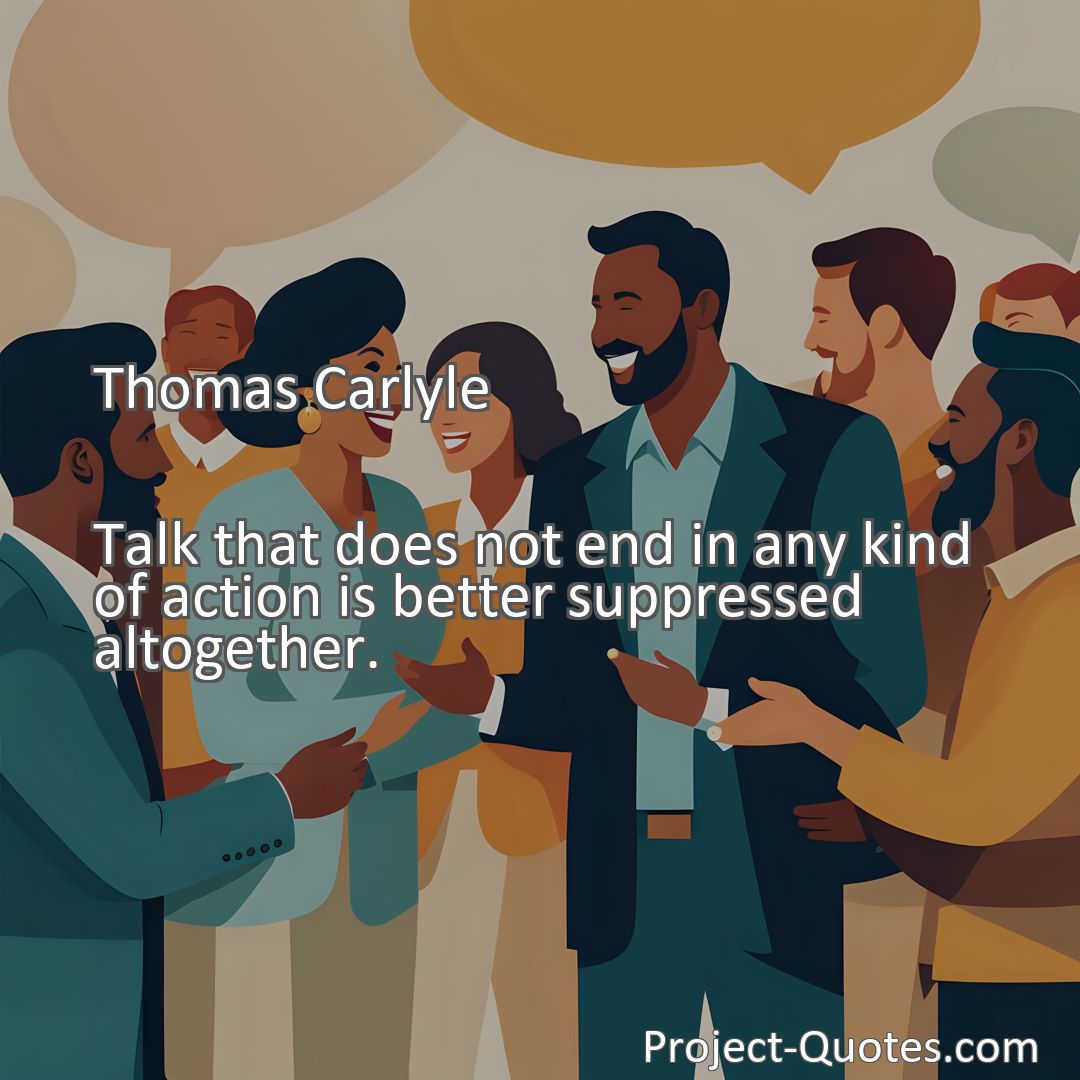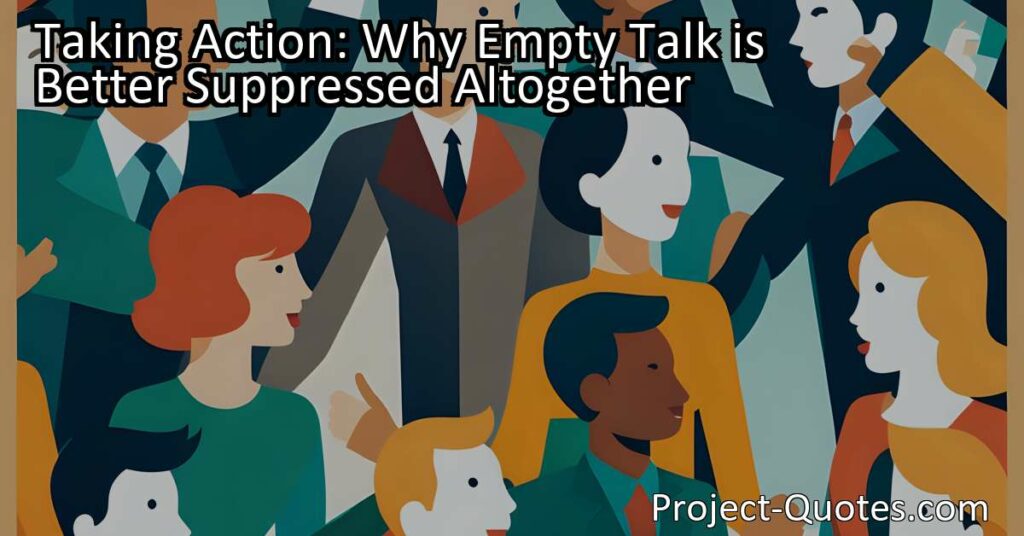Talk that does not end in any kind of action is better suppressed altogether.
Thomas Carlyle
Carlyle’s quote highlights the importance of suppressing empty talk and focusing on meaningful action. Talking without follow-through leads to disappointment and missed opportunities, while taking action instills trust and progress. By setting clear goals, developing actionable plans, maintaining resilience, and holding ourselves accountable, we can turn our words into purposeful action.
Table of Contents
Meaning of Quote – Talk that does not end in any kind of action is better suppressed altogether.
Have you ever been in a situation where someone talks and talks but never actually does anything about it? It can be frustrating, right? Well, Thomas Carlyle, a renowned Scottish writer, philosopher, and historian, once said, “Talk that does not end in any kind of action is better suppressed altogether.” In other words, Carlyle believed that empty words without any follow-through are meaningless and should be discouraged. In this article, we will explore the importance of taking action, the pitfalls of excessive talk, and how we can apply Carlyle’s wisdom in our own lives.
Carlyle’s quote reminds us of the power of action. Words have their place, of course, as they allow us to communicate and express our thoughts and intentions. But without action to support those words, they hold little value. It is through actions that we demonstrate our commitment, integrity, and reliability. When we take action, we show others that we are not only willing to talk the talk but also walk the walk.
Think about a situation where someone promises to help you but never actually follows through. Initially, their words may have given you hope and reassurance, but without any action, those promises become empty and disappointing. On the other hand, imagine someone who not only offers their support but also actively takes steps to assist you. Their actions speak louder than words, instilling confidence and trust in their abilities.
Carlyle’s words also highlight the dangers of excessive talk. We have all encountered individuals who seem to enjoy the sound of their own voice, endlessly talking about their plans and ideas, but never taking action to bring them to fruition. These individuals often use their words as a shield, masking their lack of action or avoiding accountability. They may have grand visions and elaborate theories, but they fail to translate them into tangible outcomes.
While it is essential to discuss ideas and possibilities, endless talk without action can lead to missed opportunities and stagnation. In the absence of practical steps, plans remain merely dreams. Carlyle understood that talking without acting is an exercise in futility, as it generates a false sense of progress while achieving nothing substantial. Instead, he encourages us to focus our energy on taking meaningful action that produces tangible results.
Now that we understand Carlyle’s perspective on the importance of action and the pitfalls of excessive talk, let’s explore how we can apply this wisdom to our own lives. One way to put Carlyle’s advice into practice is by setting clear goals for ourselves. By defining specific and achievable objectives, we create a roadmap for action. Additionally, we should develop a plan with actionable steps that outline how we intend to achieve those goals. Setting deadlines and regularly reviewing progress can further motivate us to turn our words into action.
However, taking action is not always easy. We may encounter various obstacles and challenges along the way. In such instances, it is crucial to maintain resilience and perseverance. Carlyle believed that true action requires determination and persistence in the face of adversity. Remember, it is during these challenging times that our actions hold even more significance. Pushing through obstacles demonstrates our commitment and shows others that we are serious about our intentions.
Another aspect to consider is the importance of personal accountability. It is easy to get caught up in talking about what we will do, but true progress is only made when we take responsibility for our actions. Holding ourselves accountable means recognizing the impact our words have on ourselves and others. It means stepping up, admitting when we fall short, and taking appropriate measures to rectify the situation. Carlyle believed that true leaders are those who not only speak with conviction but also take responsibility for their words by turning them into meaningful action.
In conclusion, Carlyle’s quote, “Talk that does not end in any kind of action is better suppressed altogether,” serves as a reminder that words alone are insufficient without accompanying action. Empty talk leads to disappointment and missed opportunities while action instills trust, confidence, and progress. By setting clear goals, developing actionable plans, maintaining resilience, and holding ourselves accountable, we can transform our words into purposeful action. So, let us remember Carlyle’s wisdom and strive to be individuals who not only talk about making a difference but also take the necessary steps to turn those words into reality.
I hope this quote inspired image brings you hope and peace. Share it with someone who needs it today!


